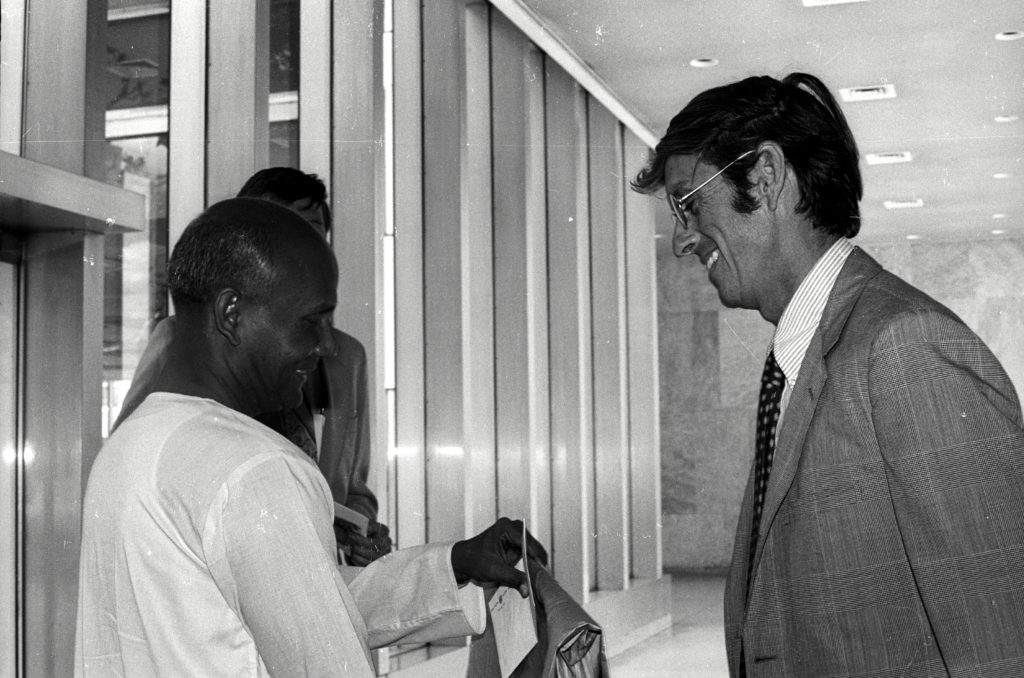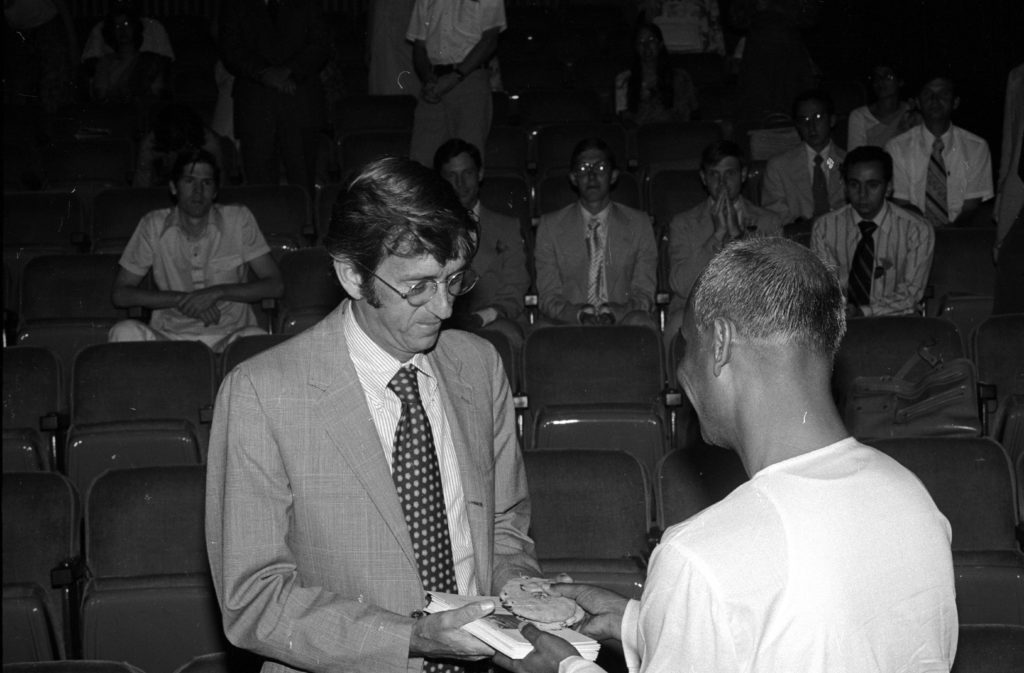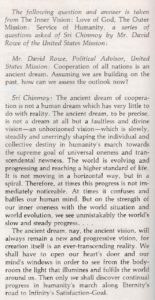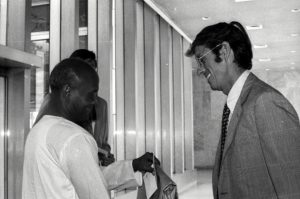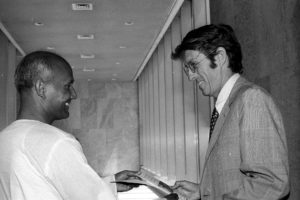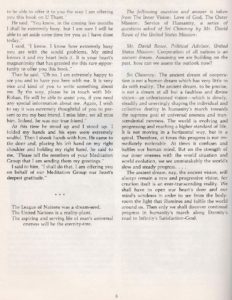Booklet “Inner Vision: Love of God, Outer Mission: Service of Humanity July 1977
Filed under Questions and Answers (Q&A) | quotations-collectionsA small booklet “The Inner Vision: Love of God, The Outer Mission: Service of Humanity” was prepared of eight questions submitted to Sri Chinmoy by Mr. David Rowe, Political Advisor, United States Mission to the United Nations, in the spring of 1977.
Copies of the booklet were presented to David Rowe by Sri Chinmoy at a meeting of the Peace Meditation Group in July 1077
A shorter edited version was in Devoted Report to the SG of 1977.
The questions and answers collection also appeared in
– Sri Chinmoy, Flame-Waves, part 11, Agni Press, 1978 Part II.FW 327-334.
– book by Sri Chinmoy, My Meditation-Service At The United Nations For 25 Years, Agni Press, 1995.
Gallery
- (c) Copyrights Sri Chinmoy Centre
- (c) Copyrights Sri Chinmoy Centre
- (c) Copyrights Sri Chinmoy Centre
8 Questions:
- A spiritual figure once referred to the United Nations as a “society for united animals” where people are not interested in religious things. Could you please comment on this?1
- Is the highest goal that the United Nations can aspire for no more than the highest goals of the Member States which compose it?
- Can we hope that individual delegations of Member States will work towards higher goals than their home governments would normally support?
- When a Member State assumes an “anti-United Nations attitude”, it is probably due to frustration or fear that the United Nations has taken or may take some action against it. Does such an attitude weaken the United Nations system?
- Secretaries-General have conceived of their office in various ways. Is there a preferred definition of the institution of the Secretary-General?
- The style and personality of the Secretary-General influence numerous individuals and national governments and to a degree determine the performance of the entire United Nations. Don’t you think, then, that it is essential to select a Secretary-General who will not allow possible wrong influences or powers to guide his actions?
- Is there a special need to promote co-operation between the newer and often poorer countries in the General Assembly and the older and, in most cases, more established, wealthier countries? Should the latter not take the lead in fostering good relations?
- Co-operation among all nations is an ancient dream. Assuming we are building on the past, how can we assess the outlook now?
